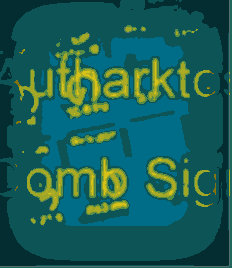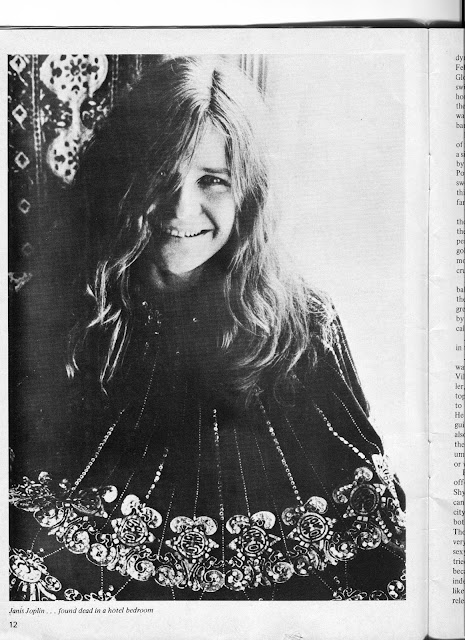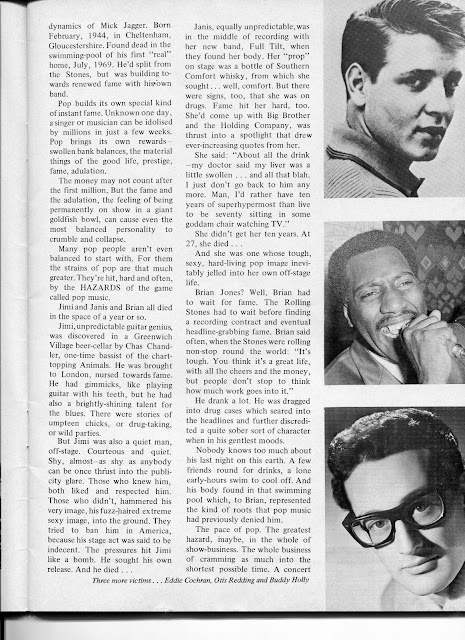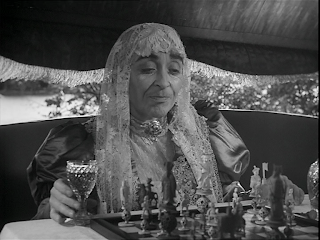Autharktos - Comb Sign
http://archive.org/details/CombSign
Autharktos - Comb Sign (2013, self-released)
1) Comb Sign
2) Enne Algust
3) HS18831701
4) Komputeroid Lavvv
5) T.A.L.P.P
6) Vaporoid
7) Woorpid
All tracks are produced in 2013 except Enne Algust in 2005.
License: CC0 1.0 Universal

Groove Issue 1: How Led Zeppelin Took Off
THE IMPORTANCE of Led Zeppelin in today’s music was confirmed by the number of polls and surveys published towards the end of 1970. “Led Zeppelin II” was the most the years most successful album; the group were voted the world's best; Robert Plant brought in the votes as the world’s top singer – and Jimmy Page, John Paul Jones and John Bonham also figures high in numerous categories.
Results in other countries, from the Continent to the Far East, were similar. Yet their success has come not so much with a bang as a whimper. No mass hysteria or cries of "Zeppelinmania", no frenetic "everyone-get-into-the-act" campaigns as happened with the Beatles, Stones and Monkees when publishers churned out souvenir booklets, special editions; when producers speedily arranged TV spectaculars; when the whole commercial jungle rushed in quickly to earn a fast buck. Zeppelin became the world's top group because people wanted to buy their records, hear their music, see their shows. They spurned hype and grew because they had something that people wanted. They bypassed the usual routes and created a few of their own.
One noticeable facet of Zeppelin's trail to the top has been to spurn the outdated methods that some groups consider obligatory. They've not gone in for a mass of publicity and television exposure.
Apart from an appearance on a late night show "How Late It Is" a couple of years ago, they have turned down more TV offers than most groups have in a lifetime. Says their manager Peter Grant: "Zeppelin won't do any TV dates anywhere until they get the right offer. We don't want to do any of these three-minute guest spots on shows. They don't present them properly. "We'll do TV so the fans can see the group, but only when the right offer comes along. Zeppelin feel very strongly about this."
Yes, the offers poured in, but the producers wanted the group to go along with the same old hackneyed formula of presentation that has needed changing for years. To a lot of producers, Led Zeppelin was nothing more than a successful name and they just wanted to book the group for the usual three minute slot without considering that the group may require a different form of presentation. One producer approached Peter Grant and asked if he could book Zeppelin and wanted to know if they would require a backing group or whether they had one of their own.
Another announced he was presenting Zeppelin in a series without bothering to consult the group or their manager. Zeppelin themselves have a television presentation in mind. They want to produce a show of their own. This would include scenes from their live appearances in different countries, sequences from the recording studios, intimate shots of home life.
The
boys have already begun work on the project and immediately it was announced received
offers from the States from various companies who wished to screen the spectacular.
Led Zeppelin don't refuse to do press interviews, but they don't exactly go out
of their way to fix them up. They've had so many unhappy experiences of
misquotes, over-sensationalised reports and cases of pure fabrication, that
they tread warily. They have a number of journalist friends who they respect
and they often request that they do an interview with a particular person. They
feel that a journalist should do his homework and know something about the artist
he interviews. To ensure that there are no misquotes they often request that
the interviewer bring along a tape recorder.
One paper wrote: "The Zeppelin is a so-called
'supergroup' composed partly of a now defunct rock combo named 'Cream'."
Another reported: "The Zeppelin has an extremely strong rhythm section,
led by bass guitarist John Bonham. Bonham is one of the best bass players
around”. When papers publish items like that, one can't blame Zeppelin for
requesting interviews only with journalists who have some knowledge of the
business.
Says John Bonham: "It's incredible the stuff that gets started
here in Britain while we’re not around. I pick up one of the music papers and
read how we're due to break up or how we're going to stay and live in the
States. "All of this is untrue and very annoying. The press chaps stick in
a comment and it's around the whole country in a week, building up into full
scale stories." "We're working
like fiends and there isn't ever an argument that could threaten to break us
up." Fortunately, the attitude of music papers has been changing during
the last two years and Robert Plant comments: "The British scene is getting
better; pop journalism and the business generally seem to have a better understanding
of what's really going on than before." Every successful artist is subject
to a certain amount of resentment and Zeppelin have had their fair share of
criticism from the knockers. A main criticism from British fans is that
Zeppelin spend so much time in the States. Jimmy comments: "No one likes forsaking
England but you are so restricted here. What we could do with here is radio
like it was in the States about 1958. "You'd get groups into the studios
and talking and there'd be a lot of warmth there. Local radio stations could
push local groups. Even in a small city in the States you'll have a choice of six
or seven stations. You'll get a couple of stations just playing soul, three
doing bubblegum and hit parade stuff, and one FM station which will be
underground, broadcasting in stereo." When Zeppelin first formed they did
a number of club gigs in Britain, but there was a great deal of apathy because
they didn't have an established name. Says Robert: "When we got together,
nobody wanted us here. Nobody wanted to dig us, they don't want to dig anybody
who hasn't got a name. It was 'oh we'll have them as a favour' and all that rubbish.
"So we decided to go to the States. Then we came back here and everyone
was raving about us. It was kind of hypercritical."However, despite what
the knockers say, Zeppelin have tried to appear in Britain as often as
possible. Manager Peter Grant is still seeking suitable venues for future appearances.
Unfortunately, Britain has too few major halls and
presenting topline acts at smallish venues causes chaos. Invariably there are
as many people turned away from shows as get to see them.
Subscribe to:
Posts (Atom)

























